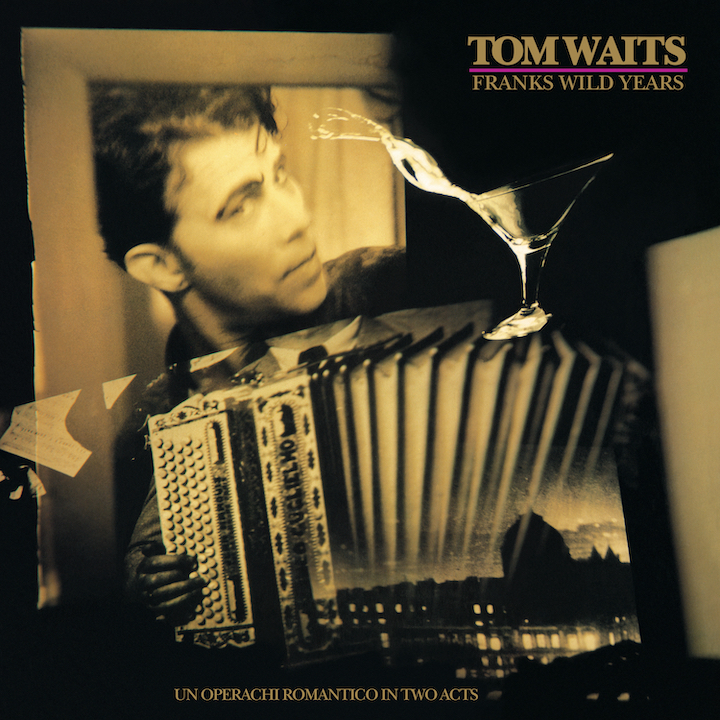Tom Waits had already traveled some miles off the beaten path when he released his first albums, 1973’s Closing Time and 1974’s The Heart of Saturday Night. Eschewing the melodic folk-rock styles of his Southern California musical contemporaries, he offered gruff vocals, bluesy, jazz-influenced music that evoked an after-hours session in a seedy bar, and lyrics that reflected the influence of beat writers and poets like Jack Kerouac and Allen Ginsberg. By the time I interviewed him in early 1975, in fact, he was confessing that he was already “getting tired of hearing myself sing” and was experimenting with “talking bits” that he referred to as “metropolitan doubletalk.” Still, he wasn’t so far from the mainstream that one of his early songs – “Ol’ 55” – couldn’t be covered by the Eagles.
A turning point came with Swordfishtrombones. Waits’s label, Elektra/Asylum, reportedly rejected a version of the record, a decision that now seems as boneheaded as Columbia’s refusal to release in the U.S. Leonard Cohen’s Various Positions, the album with “Hallelujah.” Waits left Elektra/Asylum, signed with Island Records, stopped emphasizing piano and strings, and began producing his own LPs, starting with Swordfishtrombones.
That album was “a line of demarcation for me,” Waits told writer Bret Kofford in 2000. “That’s right around the time I got married, and my wife [songwriter and musician Kathleen Brennan] worked on that record with me. She’s the one who said, ‘You can produce your own records. You don’t need to go in with a staff and people telling you what to do.’”
Swordfishtrombones, which came out in 1983, turned out to be part one of a loosely connected trilogy that also includes Franks Wild Years (1987) and Rain Dogs (1985). Remastered versions of all three of those LPs have just been reissued, while remasters of two subsequent albums, Bone Machine (1992) and The Black Rider (1993), will be out on October 6. All five records offer evidence of Waits’s singular talent via soundscapes that draw on everything from blues, Kurt Weill, and carnival music to Captain Beefheart, sea shanties, and jazz.
Swordfishtrombones – which sold poorly but garnered rave reviews – is among the best of the bunch, with its novelistic tales and inventive use of instruments ranging from trombone, banjo, and organ to bagpipes, marimba, and African drum. One standout is “Frank’s Wild Years,” where a Hammond organ and acoustic bass provide backup while Waits speaks the story of a man who settled down with a wife and a little chihuahua in a two-bedroom house with a “thoroughly modern kitchen – self-cleaning oven, the whole bit.
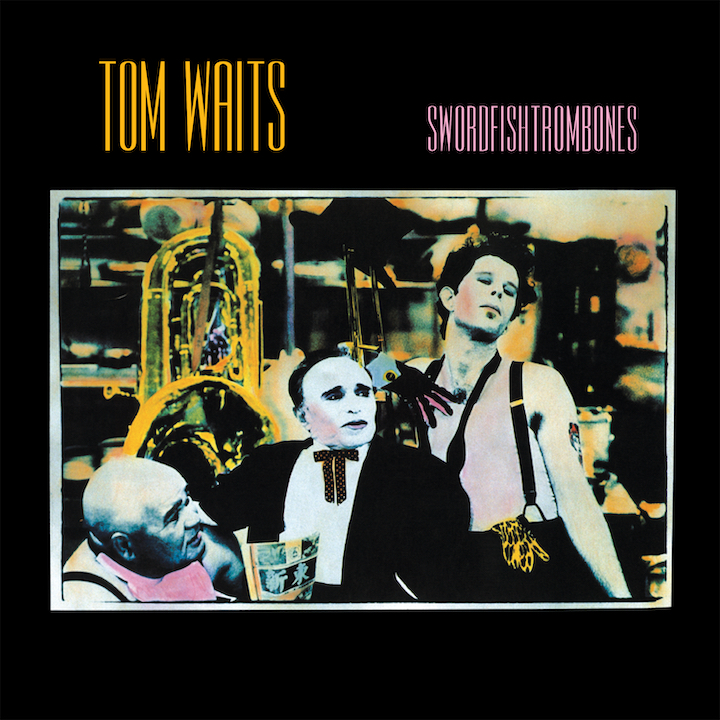
“They were so happy,” Waits continues, but then: “One night Frank was on his way home from work, stopped at the liquor store, picked up a couple Mickey’s Big Mouths, drank ’em in the car on his way to the Shell station. He got a gallon of gas in a can, drove home, doused everything in the house, torched it, parked across the street, laughing, watching it burn, all Halloween orange and chimney red. Then Frank put on a Top 40 station, got on the Hollywood freeway, headed north.” Concludes Waits: “Never could stand that dog.”
Speaking of canines, equally quirky stories imbue Rain Dogs, which is at least as good as its predecessor and employs a similarly surprising and eclectic mix of instruments. Some of the verse here is rather dense but it’s never less than colorful and the album includes at least one wonderful, accessible classic: “Downtown Train,” a number that Rod Stewart memorably rode up the charts five years later in a radically revamped version.
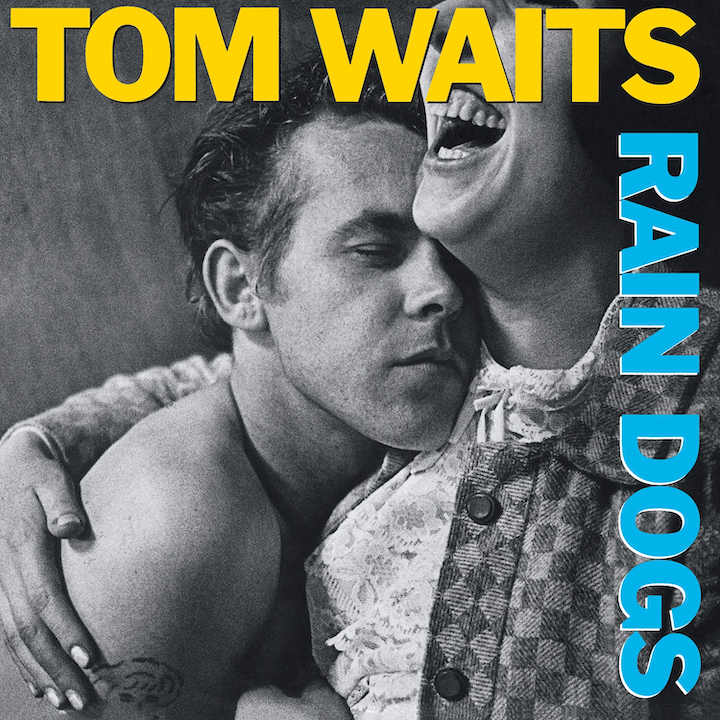
Arguably somewhat less successful but still ambitious, fascinating, and occasionally brilliant are the last three albums in this reissue series: Franks Wild Years, a song cycle that evolved from a screenplay and borrows the title of the aforementioned Swordfishtrombones song (but drops its apostrophe for reasons unknown); Bone Machine, a Grammy-winning meditation on death and homicide; and The Black Rider, which features contributions from writer William Burroughs and stage director Robert Wilson.
Make no mistake: all five of these albums are challenging and not even close to anything you’d call radio friendly (unless “radio” means freeform college stations). They’re not for everyone, but some listeners are bound to find Waits’s music rich and engrossing. Even those who are less enthralled will have to agree that it takes you to a place you can’t get to any other way.
Also Noteworthy

Wilco, Cousin. This 13th studio album from Wilco is the first since 2004’s A Ghost Is Born to tap an outside producer – in this case, Welch musician Cate Le Bon, who also lends a hand on keyboards. But if you’re guessing that her presence signals a major change in direction, guess again. This is the same Wilco we’ve known for three decades – only better.
We still get a large dose of songwriter and group leader Jeff Tweedy’s melancholoy meditations: whether reacting to news of a mass shooting (the poignant “Ten Dead”) or contemplating a failed relationship (“Evicted”), his lyrics continue to evoke trauma, pain, and sadness. (He can also still be abstruse at times: “I love the rain and how the rain can turn shit into a rose,” he sings in “Pittsburgh,” adding, “I overheard the TSA going through my clothes.” Huh?) And the band still can’t resist injecting some dissonance, such as the static that ends “Infinite Surprise,” the lead-off track.
Overall, though, this is ear candy – though complex and loaded with twists and turns, it is among the most melodic, accessible music that Wilco has made in years – perhaps since 2002’s Yankee Hotel Foxtrot. In fact, notwithstanding the pain conveyed by many of the lyrics, the music is sometimes almost as exhilarating as your average anthemic U2 track.
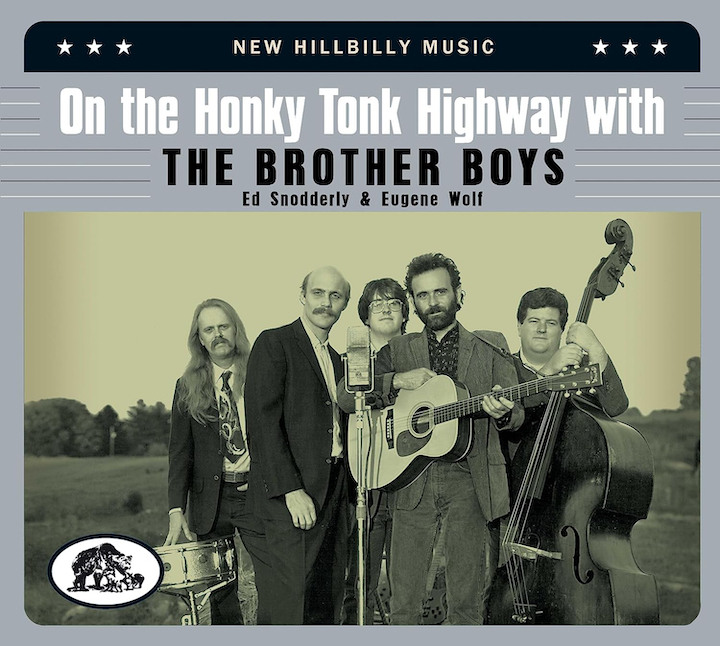
The Brother Boys, New Hillbilly Music: On the Honky Tonk Highway with the Brother Boys. As reissue co-producer Ted Olson points out in this anthology’s copious liner notes, the music of the Brother Boys defies categorization. Vocalist, songwriter, and multi-instrumentalist Ed Snodderly and singer and sometime harmonica player Eugene Wolf draw on hillbilly, honkytonk, bluegrass, and traditional country and often sound particularly reminiscent of the Everly Brothers. But their music also nods to more contemporary folk and pop.
The 51 remastered tracks in this anthology offer an excellent overview of their career. Collecting material recorded between the mid 1980s and last year, the two-CD set finds the duo backed by such instrumentalists as Jerry Douglas and Norman and Nancy Blake. The program, which includes eight previously unreleased radio and concert performances, embraces original material and compositions by luminous country artists like Mel Tillis, Hank Cochran, the Louvin Brothers, A.P. Carter, and Loretta Lynn; but the set also makes room for covers of tunes by Tom Waits and 1960s folkie Paul Siebel.
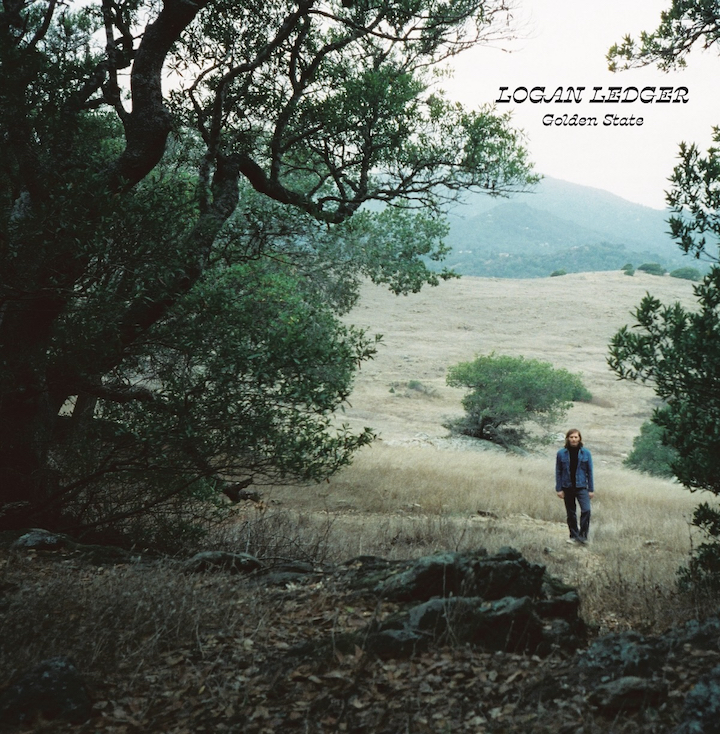
Logan Ledger, Golden State. “In the future, I might make a crazy Western swing record or an ’eighties country-pop record,” says Nashville-based Logan Ledger, “but no matter what I do, I always want to combine different eras and styles and come up with these strange hybrids.” That’s exactly what he does on his second CD, the gorgeous, Shooter Jennings–produced Golden State.
This eminently listenable collection of ballads and up-tempo numbers sounds like what might come out of a musical blender if you poured in Dwight Yoakam, Webb Pierce, Jimmy Webb, Chris Isaak, Roy Orbison, and Brian Wilson. The material, all written or co-written by Ledger, is lilting and rock solid, and his passionate, polished vocals are a treat.
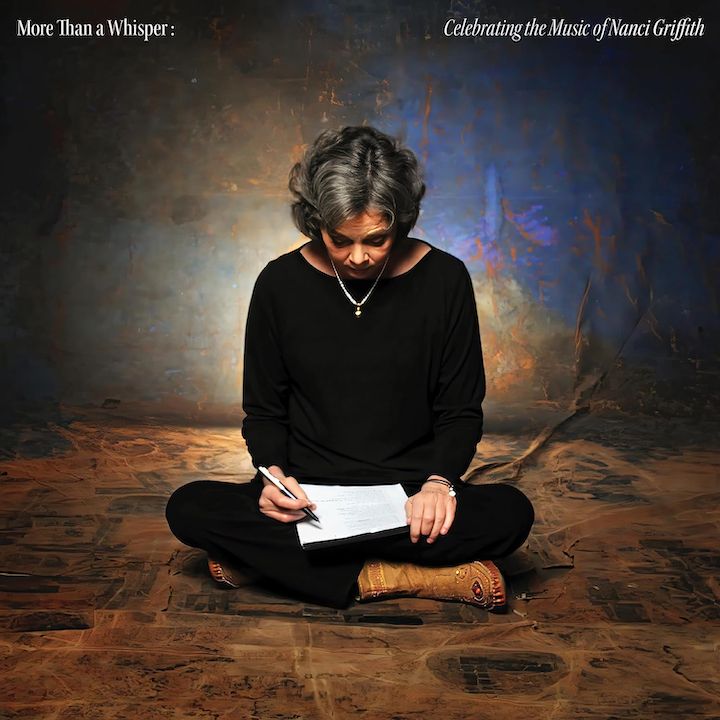
Various Artists, More Than a Whisper: Celebrating the Music of Nanci Griffith. Folksinger Nanci Griffith, who died in 2021 at age 68, was a distinctive vocalist who recorded many memorable covers during her career, such as the ones on Other Voices, Other Rooms and Other Voices, Too (A Trip Back to Bountiful). She could write as well as she could sing, however, as this excellent tribute album demonstrates.
The CD includes versions of 13 songs she wrote or co-wrote performed by an impressive lineup of friends and admirers, plus Julie Gold’s “From a Distance,” which Griffith first recorded and helped to popularize. Among the featured artists who turn in stellar work here are Shawn Colvin (“Outbound Plain”), Lyle Lovett and Kathy Mattea (“Trouble in the Fields”), Iris DeMent (“Banks of the Pontchartrain”), Steve Earle (“It’s a Hard Life Wherever You Go”), and Emmylou Harris (“Love Wore a Halo (Back Before the War)”).
The most affecting number, though, is “Love at the Five and Dime,” a duet by country singer Kelsey Waldon and the great John Prine, who died the year before Griffith. Hearing Prine’s unique voice in this anthology will remind you of just how much we lost when he passed, while the whole CD will underscore for you the size of Griffith’s contributions to her field.
Jeff Burger’s website, byjeffburger.com, contains five decades’ worth of music reviews, interviews, and commentary. His books include Dylan on Dylan: Interviews and Encounters, Lennon on Lennon: Conversations with John Lennon, Leonard Cohen on Leonard Cohen: Interviews and Encounters, and Springsteen on Springsteen: Interviews, Speeches, and Encounters.


